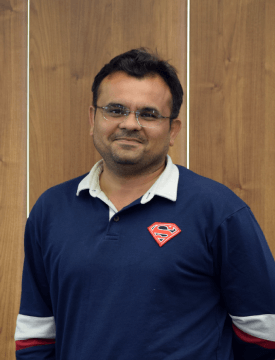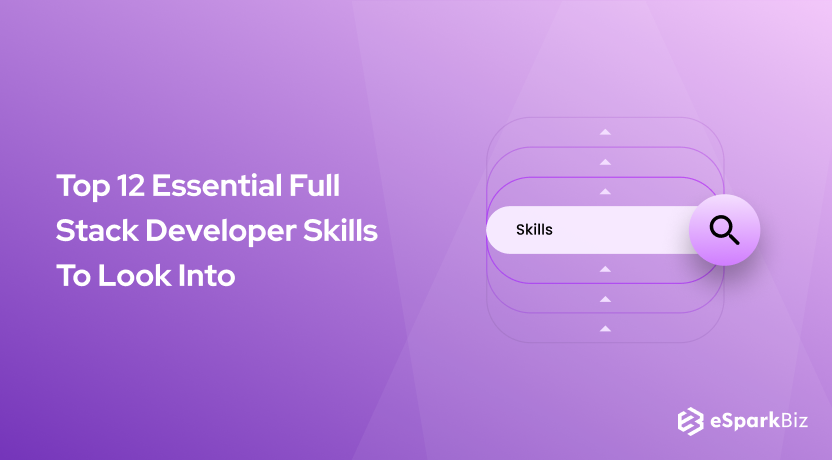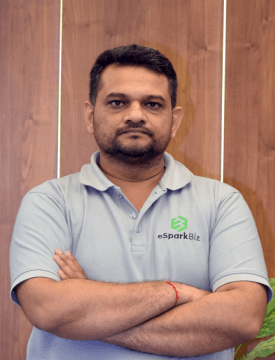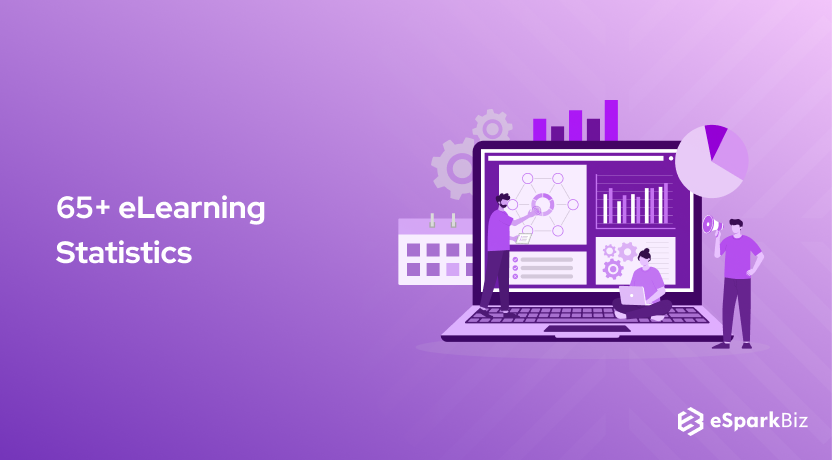Readers, if you are reading this article, then you are either a young professional looking for a job change, or right out of school and searching for career options.
An option that you may have come across in the IT sector is “full stack developer.” It is a profession that has been gaining quite the notoriety in the age of Offshore Outsourcing Development.
Experts claim that the years to come are going to see an increased demand for Full Stack Developers. They further talk about this rise owing to its origins in the comprehensive capabilities of software development.
There is a need for companies to be digitized, even more, today as people talk about leaving a digital footprint more than a carbon footprint.
If you are wondering How to Become a Full Stack Developer? Then you must read this article!
What is a Full Stack Developer?
This role is usually played by somebody familiar and sound with software development.
It is a multifaceted role that will require the person to handle front end, back end, software development, and even database management of a web application.
They ensure the ease of jumping from coding languages and across technologies.
In short, a full stack developer possesses skills and experience that make them valuable across technological platforms.
Full Stack Developer possess keen proficiency in the technology stack along with its supporting libraries and today there are a lot of adept developers for hire who can lead your project and offer you the solutions as per your requirements.
Why Has This Profession Gained Popularity?
As the year progresses, so does the technology. Today most companies are more concerned with leaving a digital footprint than a carbon footprint.
The role of a full stack developer handles a myriad of developments that ensure the company stays on track. It comes with its share of advantages and disadvantages.
Advantages
- A Full Stack Developer Skills will add to your profile. These skills span across numerous domains and fields.
- The profile ensures you are versatile and will add value to your position in a company.
- This knowledge that spans across fields will help you grow a broader and more progressive mindset.
- This one-person job will help the company reduce costs.
- They make for excellent team leaders as you will have a vast knowledge regarding web development.
- You can choose to broaden horizons using your Full Stack Web Developer Skills and become an entrepreneur in the future.
Disadvantages
- Growth in technology has seen each layer of full stack shed traditional ways to adopt more specialized and detailed methods.
- The field of full-stack development has grown and is not just limited to front and back end anymore.
- Even the software has seen advancement—the quality has arisen from the years prior.
- Each task comes with a new set of problems and are entirely different from each other.
- Full Stack Web Developer Skills are challenging to master.
12 Mandatory Full Stack Developer Skills
Programming Languages
Programming languages include PHP, JAVA, python, C ++, Perl and Ruby, to name a few. Along with these, you must be fluent in the grammar associated with each language.
This is one of the Full Stack Developer Skills to implement algorithms in computer programming and software. Fluency in is needed to deploy, design, and test the project quickly.
Git & GitHub
Git is an open-source type of control system tool; GitHub is the platform that is built around the Git. Programmers must have an account on GitHub, primarily if they work alone. They together combine to help manage and share code.
HTML/CSS
Stack Web Developer Skills must include knowing that HTML or hypertext mark-up language helps create the content of the website, and CSS or cascade styling sheet will help personalize the website.
From the layout and its colour, it involves various design elements to ensure the overall beauty of the website.
Front-End Technologies
It involves the building of the website/page and further delves into the layouting and general outlook of it. The job is to ensure a smooth interface for the user.
Modern front-end developers are required to be fluent in HTML, JavaScript, and CSS. These are the very basics that help in building, designing, and finally developing your website.
Backend Language
Back end runs in the background to store your data and operating syntax. It is not visible to the user yet, ensuring everything works smoothly on the website on their end.
It is a mix of libraries, frameworks, and languages. You must choose anyone from Ruby, PHP, Python, Java or .Net as your backend language.
Database and Web Storage
It involves a systematic collection of data or information that is stored in the computer systems. It may contain the company’s products, financial records, etc. in tables.
Some commonly used databases are Redis, SQLServer, Oracle, MongoDB, etc. Storage or DOM storage saves the client data; every detail the client feeds in on the website.
HTTP & REST
They are not the same even though they go hand in hand. HTTP is a communication protocol that helps transferring files, and REST is the interface that uses HTTP to obtain data. Keep in mind that REST does not always use HTTP.
Web Architecture
Full Stack Developer Skills must include being thorough with web architecture. It involves the designing and planning of the final website outlook.
Website application architecture will help in figuring out the data that will be required to perform the task.
This will give you a clearer idea when developing demanding applications. It is a crucial element of the website and mustn’t be ignored.
Version Control
It is the system that records changes to a file or multiple files to help you recall the changes later. A developer must be aware of how to separate these files when in the middle of computing. It also helps you enable multiple people to work on the same project simultaneously.
Basic Designing skills
The user interface or UI/UX design of a website is the key to it all, which is why you must be proficient in design platforms to create prototypes of the layout.
The prototype will help you understand what you want better. Must not take this lightly as it is the ultimate goal—the fruits of your labour.
Read also: Why Choose AngularJS For Web Development Project?
Technology Stacks- MEAN, LAMP, RoR & Django
The skills will depend on the company’s and project’s demand. You must choose one of the 4 to build your web application.
- MEAN stack is an acronym for MongoDB, ExpressJS, AngularJS, and Node.js. It is a JavaScript software that takes care of the front-end development. You can also use it for back end programming. This aids website application development.
- LAMP stacks like MEAN stacks this too is an open source but uses Linux for operating, Apache acts as the web server, MySQL is the data persistence, and PHP provides programming language. LAMP offers a more reliable platform for development and hosting better performing applications.
- RoR stacks or Ruby on Rails is a web framework application and once used to be popular. It includes the SQLite database and is run on Apache, NGINX, or WEBrick servers.
- Django stack- it runs on Python web application where the functionality will come with the framework and not separate libraries. This stack has been easy to learn.
Non-Technical Skills
- These include sound knowledge of being a team player. You will be working on numerous projects that involve the sharing of responsibilities.
- You must be up to date with technological advancements. Every year, there is something new added, and something disregarded to ensure a proper function with fruitful outcomes.
- Ensuring you remain within the budget and meet the deadlines.
Final Verdict
Hire dedicated full stack developer as it is a growing field and offers you the flexibility to do it all. There are no limitations; it really lets you run wild.
These Web App Developers are in demand amongst start-ups, financial groups, and even high-ranking businesses.
Keep in mind that it is a tough terrain and will take you long to master the various layers that one needs to for becoming a full-fledged Full Stacks Developer.
To conclude, before making a design to become a Full Stack Developer, you must get an understanding of what the field is about.
If you found this article interesting and informative, then you must leave a comment below. Tell us what you liked best about it!
-
How to Become a Full Stack Developer?
There is no fix path that one needs to follow in order to be a full-stack developer. However, there are some skill sets that you need to develop, if you want to be recognized as a world-class full-stack developer.
The skills required for full-stack developer are:
Knowledge of various programming language
Knowledge of front-end and back-end
Basic knowledge of designing
Ability to work with various APIs
Knowledge of various software stacks -
What Does A Full Stack Developer Do?
As the name suggests, Full-Stack Developer means a person who has knowledge of everything in software development. So, a full-stack developer handles databases, servers, systems engineering, and clients. He/She has the ability to deal with various software stack whether web or the mobile.
-
Why Do You Need A Full-Stack Developer?
Software Development is a very complex process. It involves various modules and technologies. So, to obtain optimum results, you need to have a person that can keep the system secure and smooth. That’s where a full-stack developer can prove to be really handy.
-
What Do You Mean By Full-Stack?
Full-Stack means development of both Front-End (Client-Side) and Back-End (Server-Side). The developer who has knowledge of programming language, server, API, database, etc. can proceed with full-stack development.
-
Which Software Stack If Best For Full-Stack Development?
There are 4 major Software Stacks that a full-stack developer needs to work on - MEAN, LAMP, RoR & Django. Out of that Django stack is the best where you use tools like js, Django, Laravel, Rails, and Android SDK.
-
Is DevOps A Part Of Full-Stack Development?
DevOps is a discipline that is utilized in bothe design as well as development. Full-Stack means you are involved in everything right from JavScript to Database. So, you can say that these two are different axes.
-
Is Django A Part Of Full-Stack Development?
YES, definitely. Django is a full-stack framework and includes all the things that are needed for full-stack development at one place. So, you can say that Django is a full-stack Python framework for developing web apps.









